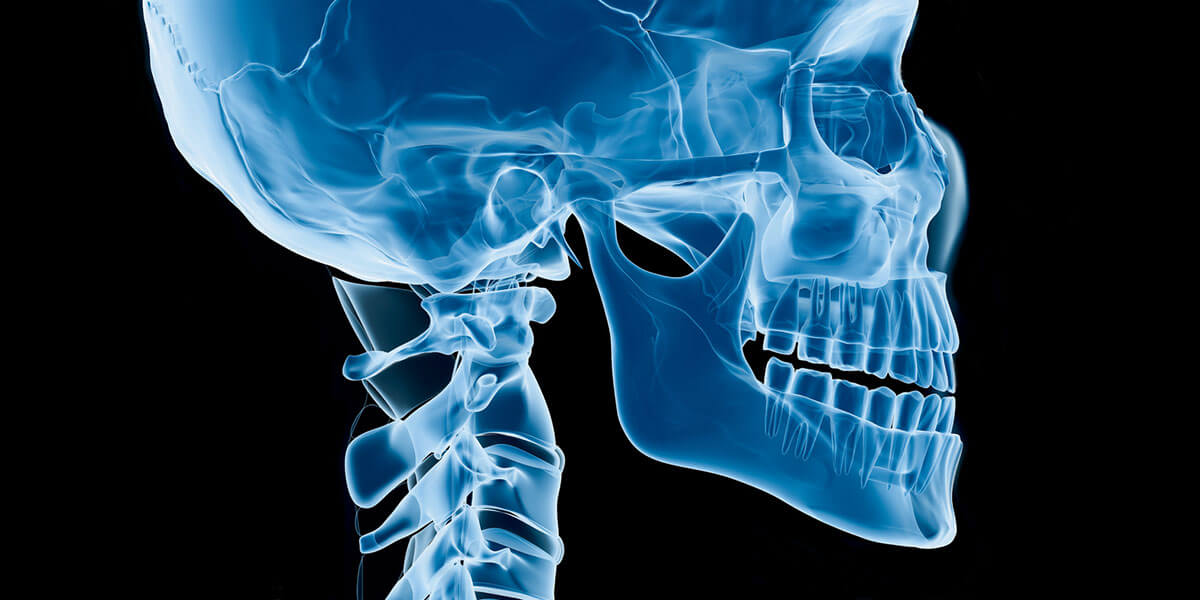TMJ Disorders and Facial Pain Treatment

Oral & Maxillofacial Associates of Oklahoma offers TMJ disorders and facial pain treatment in Oklahoma City, Norman, Midwest City, and Edmond, OK. To schedule an appointment call 405-848-7994 (Oklahoma City), 405-292-8900 (Norman), 405-733-4296 (Midwest City), 405-341-4022 (Edmond), or 405-751-3312 (Lakeside).
There are two temporomandibular joints (TMJ), one on either side of the head where the lower jaw meets the skull. These joints allow the lower jaw to move and function, and are the most constantly used joints in the body.
TMJ, or temporomandibular joint disorder, is not uncommon. When symptoms of TMJ trouble appear, Oral & Maxillofacial Associates of Oklahoma can help. As board-certified specialists in the areas of the mouth, teeth, and jaws, we are in an excellent position to correctly diagnose this complex disorder. We may order special imaging studies of your jaw joints, and even refer you to other dental or medical specialists, including a physical therapist, as needed.
What Are the Symptoms of TMJ?
TMJ is highly personalized, and different patients experience it in unique ways. However, most people with TMJ experience some of these common symptoms:
- Jaw locking when attempting to open the mouth
- Popping, clicking or grinding sounds when opening or closing the mouth
- Stiff or sore jaw muscles, especially on waking
- Frequent neck pain, headaches, ear pain, or facial pain
- Pain when opening the mouth
- Jaw deviation to one side, especially when opening the mouth wide
- Grinding of teeth at night
TMJ Treatment
Since every case of TMJ is unique, treatment must be geared to the individual patient. Some cases clear up on their own with such simple home remedies as jaw exercises and a soft diet. When these measures do not work, there are a number of other options:
Non-Pharmaceutical Treatments: Appliance therapy uses a custom-made splint known as a bite guard to relax the jaw muscles and relieve pain. You might have an upper or a lower appliance, but you should not wear both simultaneously. You may also need muscle retraining to learn to bite and chew in a more efficient, healthier way.
Supplementary Pharmaceutical Treatments: Appliance therapy may be supplemented with short-term pharmaceutical therapy. Medications that may be effective against TMJ include prescription pain relievers, muscle relaxers, tri-cyclic antidepressants, and mild sedatives.
Surgical Options: If non-surgical treatment does not relieve the problem, or if there is significant joint damage, we may recommend surgery. Two options are arthroscopy (the method used to inspect and treat larger joints such as the knee), or direct surgical repair of damaged tissue.
Call our office at 405-848-7994 (Oklahoma City), 405-292-8900 (Norman), 405-733-4296 (Midwest City), 405-341-4022 (Edmond), or 405-751-3312 (Lakeside) to schedule your initial consultation.
Frequently Asked Questions About TMJ Disorder
What is the main cause of TMJ disorder?
One of the most common causes of TMJ disorder is teeth grinding and jaw clenching during sleep, which places a great deal of stress on the joints. TMD can also be caused by arthritis or by an injury to one or both joints.
Does TMJ disorder go away?
For some patients, TMJ disorder goes away on its own, particularly if it was caused by an injury or an abnormally stressful time in their lives. In other cases, TMJ symptoms come and go, but for many, TMD only worsens with time. It’s important to consult with a professional if you have TMJ disorder to prevent permanent damage to your joints.
What will happen if TMJ is not treated?
When TMJ disorder is not treated, the pain it causes can begin to interfere with your ability to go about your regular daily activities. Patients with untreated TMD may experience headaches and migraines, chronic pain, difficulty eating, and even depression.
Can anxiety cause TMJ disorder?
There is a link between anxiety and TMJ disorder, but TMD is not directly caused by anxiety. Instead, anxiety and stress causes tension in the body that leads to teeth grinding and jaw clenching; grinding and clenching, in turn, leads to TMJ disorder.
What is the best treatment for TMJ disorder?
The best treatment for TMJ disorder depends on the underlying cause. A patient who has TMD due to arthritis requires a different treatment plan than someone who has TMD caused by teeth grinding when they’re sleeping. We create custom plans that address your unique needs.
